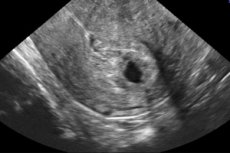New publications
New serious complication of spontaneous abortion discovered
Last reviewed: 02.07.2025

All iLive content is medically reviewed or fact checked to ensure as much factual accuracy as possible.
We have strict sourcing guidelines and only link to reputable media sites, academic research institutions and, whenever possible, medically peer reviewed studies. Note that the numbers in parentheses ([1], [2], etc.) are clickable links to these studies.
If you feel that any of our content is inaccurate, out-of-date, or otherwise questionable, please select it and press Ctrl + Enter.

A miscarriage in the future increases the risk of premature death of a woman from cardiovascular disorders. This is the conclusion reached by American scientists representing Harvard University. They published details of their work in the scientific journal BMJ.
Spontaneous abortion is the outcome of approximately 20% of all pregnancies. Previously, scientists have conducted studies in which they discovered a connection between a history of miscarriage and the long-term development of hypertension, cardiovascular pathologies, and type II diabetes. This time, researchers encountered another adverse effect, namely, the risk of premature death. Scientists learned about this side effect for the first time.
This finding was obtained in a large-scale observational study as part of the Nurses' Health Study, a series of prospective studies that examined the epidemiology and long-term effects of nutrition, hormonal balance, ecology, and the characteristics of the medical profession on health and disease.
The specialists studied information on more than a hundred thousand women of childbearing age (from 25 to 42 years old). The study was conducted over 24 years - from 1993 to 2017. Throughout this period, the participants in the experiment filled out a special questionnaire in which they indicated changes in their lifestyle and health, described pregnancies that had occurred and their outcomes.
The results showed that more than a quarter of the observed participants had a pregnancy that ended in spontaneous abortion. In total, almost 3,000 cases of premature deaths were recorded over the entire observation period: 1,346 women died from malignant pathologies and 269 women died from cardiovascular diseases. The mortality rate was higher among participants who had three or more miscarriages, as well as among those who had a spontaneous abortion before the age of 24.
The scientists analyzed all the most likely factors and found that the participants who had a spontaneous miscarriage had a higher risk of premature death than women with no history of childbearing interruptions in their medical records. The risk of early death from cardiovascular pathologies was more than 48%. This indicator was more pronounced for women with habitual miscarriages, as well as for cases of spontaneous abortions at a young age.
According to scientists, miscarriages can be perceived as early markers of the risk of premature death. Next, researchers will have to find out whether spontaneous abortion can be the result of existing prerequisites or whether it activates a mechanism involved in shortening the life span.
Original source of information: BMJ journal
